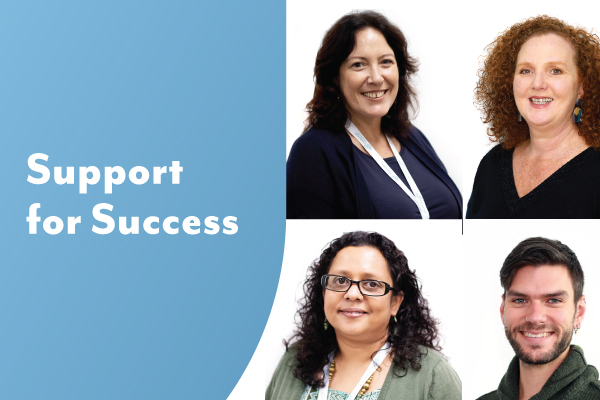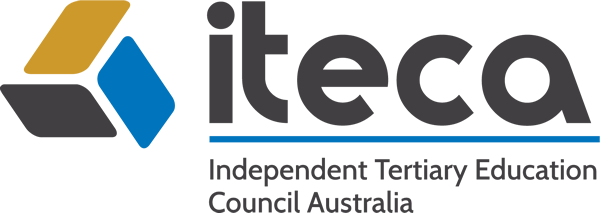Digital literacy is a form of literacy in the digital age that involves having the skills and ability to utilise digital technologies and the internet to locate, evaluate and communicate information. In a world that is increasingly focused on online learning and remote working for a range of reasons, being digitally literate in your business, employment and personal life is essential.
The coronavirus pandemic fast-tracked and increased the need for digital literacy, with the huge uptake of digital technologies for education, working and connecting across the world, Australia included. Setting aside the pandemic, individuals and organisations across a variety of sectors can use digital literacy to optimise their communication, productivity and approach to work and education.
Reach goals sooner with a thorough understanding of how to use a range of digital and online tools.

Benefits of digital learning skills
Improve your digital literacy for a range of benefits in life, work and studies, including:
Flexibility to learn and grow
Being able to use digital software and leverage the power of the internet can give you access to more ways to gain information both professionally and personally. Whether it’s through the flexibility of online learning, such as our online learning portal to study courses, or accessing books and resources, your knowledge expands as your digital literacy does.
More options to connect
Email, phone, text, video conferencing — there are so many options to connect with family, friends, trainers, colleagues, healthcare providers and more. Texts are fast and informal and great for short messages or if you need to know something quickly. Using video conferencing platforms for personal face-to-face connection or support, and feel comfortable enough to ask the questions you really want to know.
Enhanced employability
Your willingness to tackle new things and ability to navigate digital platforms can be a strength on your job application in a society that is increasingly open to technology and the capabilities of the internet.
Access to unlimited resources
If you want to create something, learn something, find something, share something, chances are there is a technological or online resource (or several!) to support you. Improving your digital literacy gives you access to more resources than ever before to enhance the way you run your business, the way you approach your job or studies, or even your personal life.
Exploring digital and online tools
Far beyond simply searching the internet for information, every day there are more online apps, programs and tools that are being created to try to provide ways for us to communicate, learn, plan, coordinate and discover. It’s impossible to know how to use them all, but being competent in a few of the most commonly used platforms will go a long way. Plus, you can generally apply your skills across many once you have the idea. Understand the ways digital platforms may be used, which are popular and what’s expected of you when using them.
Video conferencing
Though it’s been used in businesses and homes for many years, video conferencing has been incredibly useful and popular during the last few years to give us access to a face-to-face communication experience without leaving our homes. Zoom, Skype, FaceTime, Google Meet — there are countless platforms to use so we can see one another, talk to one another and even share our screens. This makes learning, working and staying connected accessible with nothing more than a computer or phone and an internet connection.
File sharing
Sharing and storing files can use a lot of space, but there are many online places who are happy to share some space with you. OneDrive, Dropbox, Google Drive — there are plenty of options to choose from when you need to share a big file or many files, or if you want to store your files somewhere and provide select others (or anyone) with access to them.
Email etiquette
Hardly a new technology, email has been used personally and professionally since the 1990s. In today’s workplaces and educational settings, email is vital and used frequently and has long replaced the fax. Emails are used for sending messages, invitations, files, images and links. Good email etiquette can impact how you are seen by others, so it’s important to get it right.
- Use clear subject lines: Keeping email communications efficient and easy to find is best achieved with clear subject lines that stick to the topic of their contents.
- Check your spelling and grammar: Professionalism is a must via email, and correct spelling and grammar showcase your communication skills and attention to detail. Avoid emojis and text shorthand (brb, lol, thx) as a general rule. Personal email? Feel free to have a little fun!
- Assess the email trail before forwarding: Forwarding an email can be very efficient, but keep in mind that not every piece of information may be appropriate for the next recipient. Check through the email trail of replies before forwarding it on.
- Make note of attachments: If you’re attaching a file to your email, let the recipient know. And similarly, if you’re telling your recipient there’s an attachment, don’t forget to attach it before sending!
Quick ways to build digital literacy
If you’re not yet confident about your digital literacy, open your mind to learning. It’s not as overwhelming as it looks to become online savvy and with some time and patience you can reap the rewards for remote learning, searching, storing and presenting information and collaborating with others in digital spaces.
Jump in and try
Don’t be afraid! Download a couple of apps, visit a few websites you’ve heard about and just explore. Just use your common sense, like avoiding entering payment details or testing out sending features with anything private.
Set goals
Doing everything at once might just end up confusing. Break your goals down and celebrate the smaller wins. You’ll be doing it all in no time.
Ask for help
With so many apps and devices to be across, it’s not surprising if you can’t get your head around a couple. It’s great to ask for help — that’s the best way to learn.
It’s good to know that once you begin to improve your digital literacy, it gets easier to expand your know-how very quickly. When you’re getting started, be patient with yourself and forgiving if you take a little longer to get the hang of things.
Digital literacy for online learning success
If you’re studying early childhood education, or even if you are already working in the sector, digital literacy can have many advantages for you, helping you to succeed in a career in early childhood education. Even child care business owners and directors can benefit from a greater appreciation for digital methods to manage and market centres. The more tools you are confident with trying and using, the more opportunities you have to collaborate, learn and grow.
If you’re thinking about how you can study online or even teaching online, gaining new technology-centric skills is worth the effort. Plus, in time early childhood educators may be supporting children in learning digital literacy too.
Our online portal gives you the opportunity to learn online in a supported and personalised environment, complete with tech support and trainer guidance. If you are about to commence a course online, we’ve compiled this guide to help you get started. It doesn’t matter if you are a digital guru or new to online spaces and online learning, the team at Selmar can help you level up your digital literacy and gain your desired qualifications with a high-quality online course.
Get in contact with us today to chat about your career goals.




